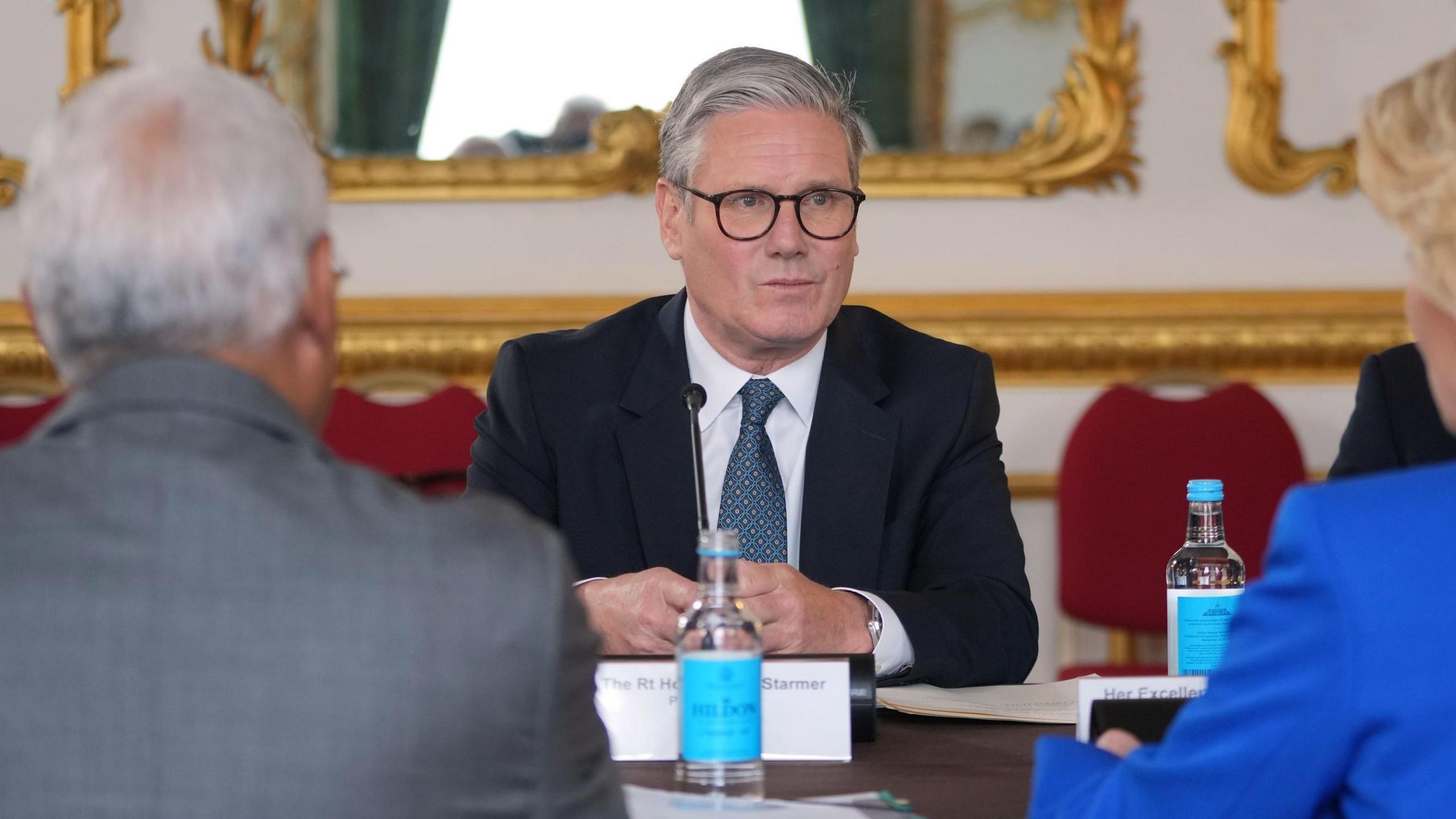Starmer banks on public being over Brexit

- Published
This is undeniably a significant deal. In a funny way, though, for Sir Keir Starmer to succeed he needs it to seem as insignificant and uncontroversial as possible.
For many in politics, wading through the details of this agreement will be an act of nostalgia – or perhaps deeply triggering.
Dynamic alignment. Sanitary and phytosanitary checks. Fishing quotas. Jurisdiction of the European Court of Justice in Luxembourg.
These are concepts, institutions and trade-offs which came to dominate British politics for much of the past decade. And with good reason: as the UK navigated its divorce with the EU, these technical questions became deeply political as they shaped the post-Brexit relationship.
UK-EU deal moves on from Brexit rows, Starmer says
- Published19 May
At a glance: What's in the UK-EU deal?
- Published19 May
Five unanswered questions in UK-EU deal
- Published20 May
Sir Keir's big bet is that nobody really cares any more.
In the press conference with EU chiefs Ursula von der Leyen and Antonio Costa, the prime minister talked about moving on from the "stale old debates" of the Brexit years.
It's worth remembering too that the 2016 referendum was not the only political mandate delivered on this issue, and that Labour's general election manifesto last year promised an "improvement" to the Brexit deal.
The view at the top of government is that there is no public clamour to reopen the biggest questions of Brexit – membership of the single market and customs union – but that making the relationship smoother within those parameters is mere pragmatic common sense.
Of course pragmatism lies in the eyes of the beholder. The Conservatives have lambasted the deal as "surrender", attacking both the 12-year extension to existing fishing quotas and the commitment for the UK to follow EU rules on agriculture.
Reform UK, in many ways the successor to the Brexit Party and UKIP, are unsurprisingly making a similar argument.
On the other side of the equation, the Liberal Democrats welcomed "some positive first steps" but urged the prime minister to "be more ambitious".
Their position is that the UK should rejoin the EU's customs union - an agreement between member states not to charge tariffs on each other's goods.
What will prove revealing over the coming days, weeks, and months is not just those opposition parties' positions but how much they campaign on them.
If opposition to today's deal becomes a significant part of these parties' platforms, it will tell us that they believe there is in fact plenty of controversy yet in the decades-long debate over the UK's relationship with the EU.
If that's right, then today's main significance may prove to have been thrusting questions about Brexit right back to the centre of political life.
But if Sir Keir is right that the bulk of the public simply wants as little friction with the EU as possible, then he could prove to be our first truly post-Brexit prime minister.

Sign up for our Politics Essential newsletter to keep up with the inner workings of Westminster and beyond.